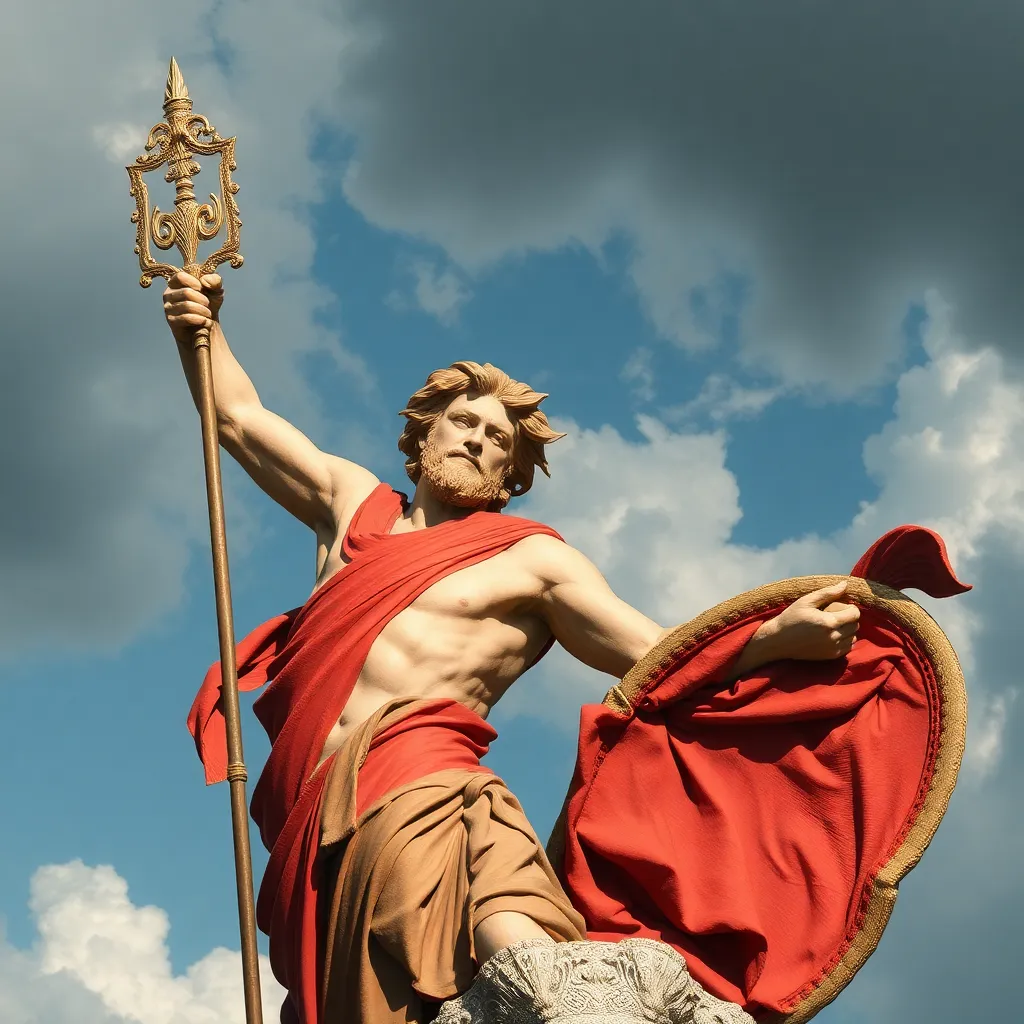The Influence of Perseus on Modern Hero Narratives
I. Introduction
Perseus, one of the most celebrated heroes of Greek mythology, embodies the quintessential hero’s journey. His legendary feats, which include slaying the Gorgon Medusa and rescuing Andromeda from a sea monster, have made him a figure of immense importance in the tapestry of myth. Hero narratives, rich in themes of bravery, sacrifice, and the battle against evil, have been integral to storytelling throughout history. This article aims to explore how Perseus’s myth has influenced modern hero narratives, highlighting his relevance and the archetypal characteristics that persist in contemporary tales.
II. The Myth of Perseus: A Brief Overview
The story of Perseus is packed with adventure and moral lessons, reflecting the values of ancient Greek society. Key events in his myth include:
- Birth and prophecy: Perseus was born to Danaë and Zeus, who came to her in the form of golden rain. A prophecy foretold that he would kill his grandfather, Acrisius, leading to his abandonment in a chest thrown into the sea.
- Slaying of Medusa: Armed with gifts from the gods, such as a mirrored shield and winged sandals, Perseus successfully beheaded Medusa, the Gorgon who turned men to stone.
- Rescue of Andromeda: On his return, he encountered Andromeda, a princess chained to a rock as a sacrifice to a sea monster. With courage, he saved her, eventually marrying her.
Themes present in Perseus’s myth include courage in the face of danger, the importance of divine favor, and the triumph of good over evil, which resonate deeply in modern narratives.
III. Archetypal Hero Characteristics
To understand Perseus’s influence, one must first define the hero archetype. An archetypal hero is characterized by their journey of growth, courage, and moral integrity. Perseus exemplifies many of these traits:
- Courage and bravery: Perseus faces formidable foes, showcasing remarkable bravery in his quests.
- Divine assistance: His success is often attributed to the help of gods like Athena and Hermes, illustrating the theme of divine intervention in hero narratives.
- Overcoming obstacles: He navigates numerous challenges, from battling monsters to rescuing Andromeda, reflecting the hero’s journey of trials and tribulations.
IV. Perseus’s Impact on Literary Heroes
Perseus’s narrative framework has influenced countless literary heroes throughout history:
- Hercules: Like Perseus, Hercules faces daunting tasks and seeks redemption, embodying the heroic struggle.
- Odysseus: Both heroes exhibit intelligence and bravery, navigating treacherous paths to achieve their goals.
- Modern heroes: Characters like Harry Potter and Katniss Everdeen share traits with Perseus, including the fight against evil and the importance of companionship and loyalty.
The common traits and narrative structures influenced by Perseus include the hero’s quest, the presence of mentors, and the ultimate confrontation with evil forces, which continue to shape modern storytelling.
V. Perseus in Popular Culture
The legacy of Perseus extends into contemporary culture, with numerous adaptations and reinterpretations:
- Film adaptations: Movies like “Clash of the Titans” portray Perseus’s adventures, blending myth with modern cinematic techniques. The film’s popularity has revived interest in Greek mythology.
- Other contemporary films: Films such as “Wrath of the Titans” and various animated features continue to draw inspiration from Perseus’s exploits.
- Representation in literature and video games: Perseus appears in various novels and video games, often reimagined as a hero with modern sensibilities, reinforcing his timeless appeal.
VI. Thematic Relevance in Modern Society
Perseus’s narrative themes resonate in current hero stories, reflecting enduring human values:
- The battle between good and evil: Modern narratives often depict clear struggles between heroic figures and villainous forces, echoing Perseus’s confrontations.
- Sacrifice and redemption: The hero’s journey frequently involves personal sacrifice and the quest for redemption, themes prevalent in Perseus’s tale.
These themes resonate with contemporary audiences, offering relatable moral dilemmas and challenges that reflect society’s ongoing struggles.
VII. Critiques of the Hero Narrative
While Perseus represents the traditional hero archetype, critiques of this narrative have emerged in modern discourse:
- Limitations in traditional hero narratives: Critics argue that classic hero stories often follow predictable patterns and lack depth in character development.
- Modern reinterpretations and subversions:
- Anti-heroes and flawed characters: Today’s narratives frequently feature complex characters who embody moral ambiguity, challenging the idealized hero mold.
- Diverse representations of heroism: Contemporary stories increasingly showcase a variety of heroes from different backgrounds, moving beyond the traditional male-centric narratives.
VIII. Conclusion
In conclusion, Perseus’s lasting influence on hero narratives is a testament to his archetypal qualities and the universal themes present in his story. As society continues to evolve, so too does the concept of the hero, adapting ancient myths to reflect modern values and struggles. The evolution of the hero archetype, from the traditional tales of Perseus to contemporary representations, highlights the relevance of ancient myths in today’s storytelling landscape. Perseus remains a powerful symbol of courage, resilience, and the enduring fight against adversity.




